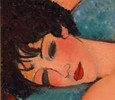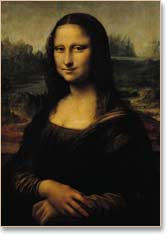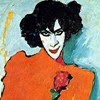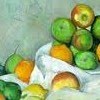|

WHO ARE THE
BEST MODERN
ARTISTS?
For biographies of
the greatest
Pre-Raphaelites,
Impressionists,
and Symbolists,
please see:
Famous Painters
WHO WON THE
TURNER PRIZE?
To find out who
holds the world's
top award for
contemporary art,
please see:
Turner Prize
Winners
|
Best Modern Painters
(c.1700-present)
We profile ALL the great 18th century masters
of English
figurative painting, like William Hogarth and Joshua Reynolds,
as well as ALL the main members of the school of English
landscape painting including JMW Turner, Constable and Richard
Parkes Bonington. We also cover the 18th century American School, exemplified
by portraitists Benjamin West, John Singleton Copley, and Gilbert Stuart,
and Japanese Ukiyo-e artists, like Hokusai and Hiroshige.
We provide biographies of ALL major 19th
century painters including: masters from the French Barbizon Landscape
School, like Corot, Theodore Rousseau, Millet and Daubigny, as well as
American painters of the Hudson River School (Thomas Cole, Frederic Church),
and exponents of Luminism. Realists like Daumier and Courbet, and Symbolists
like Gustave Moreau, are also covered. We profile ALL the great Impressionist
painters and ALL Post-Impressionist painters like Georges Seurat,
Van Gogh, Gauguin, Cezanne and Munch. We profile Jules Cheret, inventor
of 3-stone chromolithography, as well as ALL the great Russian artists
up to 1917, including the goldsmith Peter Carl Faberge, creator of the
exquisite Faberge Easter Eggs.
• For narrative, historical or mythological
works, see: Best History Painters.
• For individual, group or self portraits, see: Best
Portrait Artists.
• For everyday scenes, see: Best
Genre Painters.
• For views and vistas, see: Best
Landscape Artists.
We profile ALL major 20th
century painters, including Fauvists like Matisse and Andre Derain;
Expressionists like Modersohn-Becker, Kandinsky, Emil Nolde, August Macke
and Klee; Chagall and Modigliani of the Paris School; Cubists like Picasso
and Braque; Dadaists like Marcel Duchamp; Surrealists like Dali and Magritte,
and abstract painters like Mondrian, Malevich and Moholy-Nagy. We cover
ALL important American artists such as Hopper, Rothko, De Kooning, Pollock,
Warhol, Jasper Johns, and the Neo-Pop sculptor Jeff Koons, as well as
Mexican Muralists like Diego Rivera, and South Americans like Fernando
Botero, and 20th century European masters like Lucian Freud, Antoni Tapies,
Yves Klein and Damien Hirst.
|









